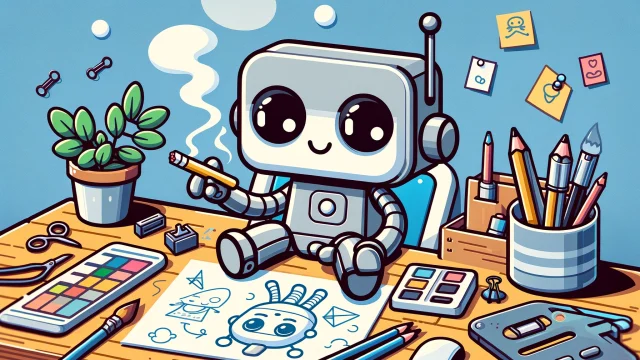Dragon Ball Evolution: A Controversial Chapter in the Dragon Ball Legacy
Dragon Ball Evolution: A Controversial Chapter in the Dragon Ball Legacy
Dragon Ball Evolution is a 2009 live-action film adaptation of the beloved Dragon Ball franchise, directed by James Wong. Despite being based on one of the most popular anime and manga series of all time, the film is widely regarded as a misstep that failed to capture the essence of the source material. Its critical and commercial reception has made it a subject of debate among fans and a cautionary tale in the world of anime-to-live-action adaptations.
Background and Production
1. Origins of the Project
- Dragon Ball Evolution was created with the intent to introduce the Dragon Ball franchise to a broader Western audience.
- Produced by 20th Century Fox, the film was expected to capitalize on the global popularity of Akira Toriyama’s original manga and anime.
2. Akira Toriyama’s Involvement
- Toriyama, the creator of Dragon Ball, was not actively involved in the film’s production.
- After the film’s release, he expressed dissatisfaction with the adaptation, stating it strayed too far from his original vision.
Plot Summary
The story loosely follows the early arcs of Dragon Ball but takes significant liberties with the plot and characters.
- Goku, a high school student, is trained by his grandfather, Gohan, in martial arts.
- The villain Piccolo, with the help of his servant Mai, seeks to gather the seven Dragon Balls to gain ultimate power.
- Goku teams up with Bulma, Yamcha, and Master Roshi to prevent Piccolo from achieving his goal.
While the film retains some familiar names and concepts, it diverges heavily from the source material, simplifying the narrative and altering character motivations.
Key Characters
1. Goku (Justin Chatwin)
- Portrayed as a shy, high school teenager rather than the carefree martial artist of the original series.
- His journey focuses on embracing his Saiyan heritage and becoming Earth’s protector.
2. Bulma (Emmy Rossum)
- A tech-savvy adventurer seeking the Dragon Balls.
- Unlike her anime counterpart, her role is more action-oriented but lacks depth.
3. Master Roshi (Chow Yun-fat)
- Goku’s mentor, reimagined as a less comedic and more serious figure.
- Lacks the eccentricity that defines the original character.
4. Piccolo (James Marsters)
- A one-dimensional villain without the complexity of the manga version.
- Piccolo’s connection to the Namekian race and his eventual redemption arc are entirely absent.
Reception
Dragon Ball Evolution was met with overwhelmingly negative reviews from critics and fans alike.
1. Critical Response
- Critics lambasted the film for its lackluster script, poor special effects, and failure to honor the source material.
- It holds a low rating on Rotten Tomatoes, with reviewers calling it a shallow and uninspired adaptation.
2. Fan Backlash
- Fans of the Dragon Ball franchise were deeply disappointed by the film’s disregard for the anime’s rich lore and beloved characters.
- Many felt that the movie failed to understand the core themes of Dragon Ball, including the importance of friendship, perseverance, and personal growth.
3. Box Office Performance
- The film grossed $58 million worldwide on a reported budget of $30 million, making it a financial disappointment.
Common Criticisms
- Departure from Source Material
- The film’s story and characters bore little resemblance to Akira Toriyama’s original work.
- Inconsistent Tone
- The mix of high school drama and martial arts action failed to resonate with fans.
- Visual Effects
- The CGI and fight choreography were considered subpar, especially compared to the high-energy battles of the anime.
- Underdeveloped Characters
- Iconic characters like Goku, Bulma, and Piccolo were stripped of their defining traits and motivations.
Akira Toriyama’s Reaction
After the release of Dragon Ball Evolution, Akira Toriyama criticized the film, stating it lacked the heart and spirit of his manga. He later became more involved in the Dragon Ball franchise’s projects, including Dragon Ball Super, to ensure future adaptations stayed true to his vision.
The Legacy of Dragon Ball Evolution
Despite its shortcomings, Dragon Ball Evolution has had a lasting impact:
1. Cautionary Tale
- The film is often cited as an example of how not to adapt anime for live-action.
- It reinforced the importance of respecting source material when adapting beloved franchises.
2. Renewed Interest in Anime
- The backlash against the film reignited fans’ appreciation for the original Dragon Ball series.
- It also encouraged a broader discussion about the challenges of adapting anime into live-action.
3. Future Adaptations
- Lessons from Dragon Ball Evolution have influenced more recent attempts at live-action adaptations, such as Netflix’s One Piece, which aims to work closely with creators and respect the original material.
Conclusion
Dragon Ball Evolution remains a contentious entry in the Dragon Ball franchise, often viewed as a missed opportunity. While it failed to capture the magic of Akira Toriyama’s original work, it serves as a reminder of the importance of staying true to the heart of beloved stories. For fans, the film is a lesson in what makes Dragon Ball special—and a reason to celebrate the series that inspired it.

